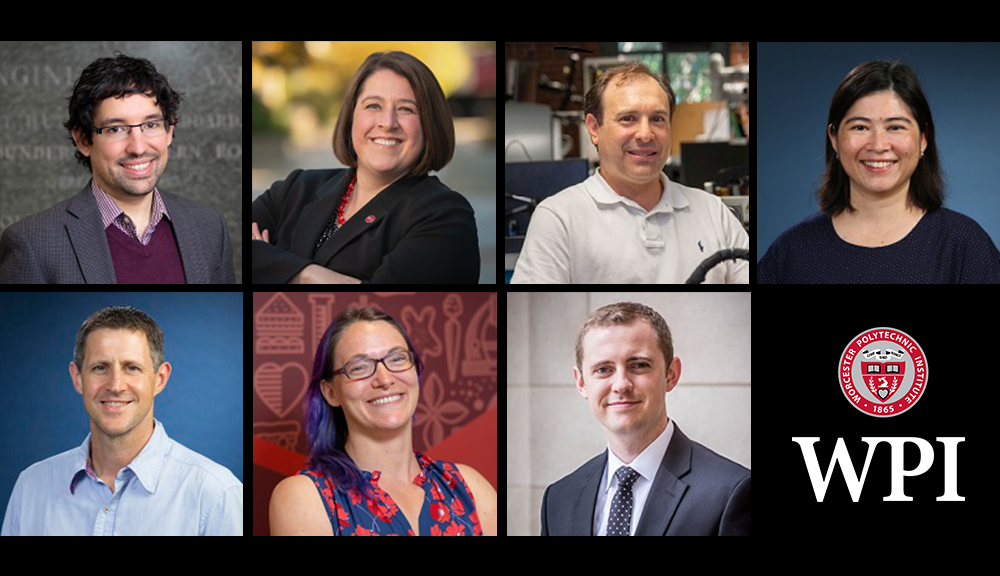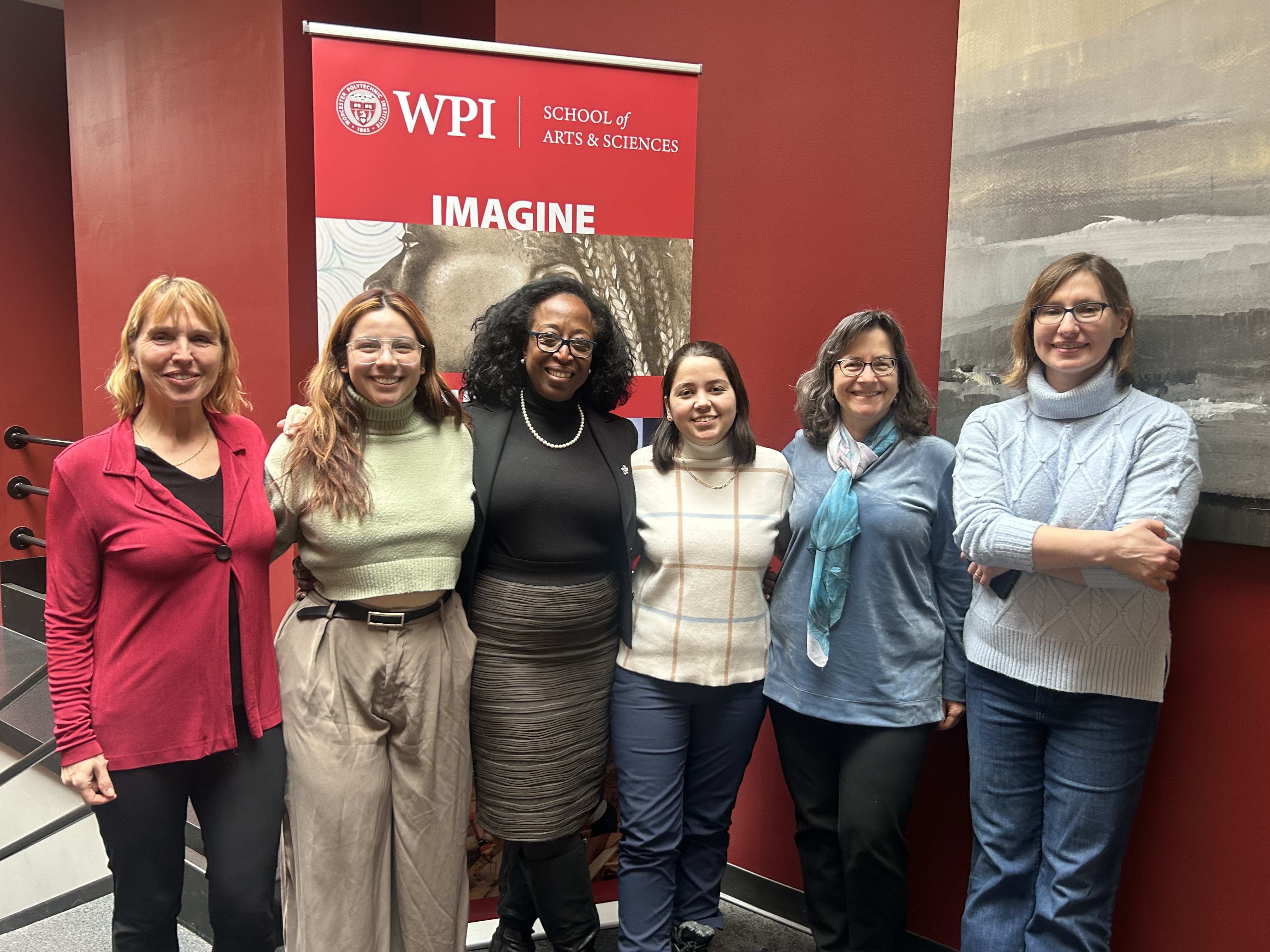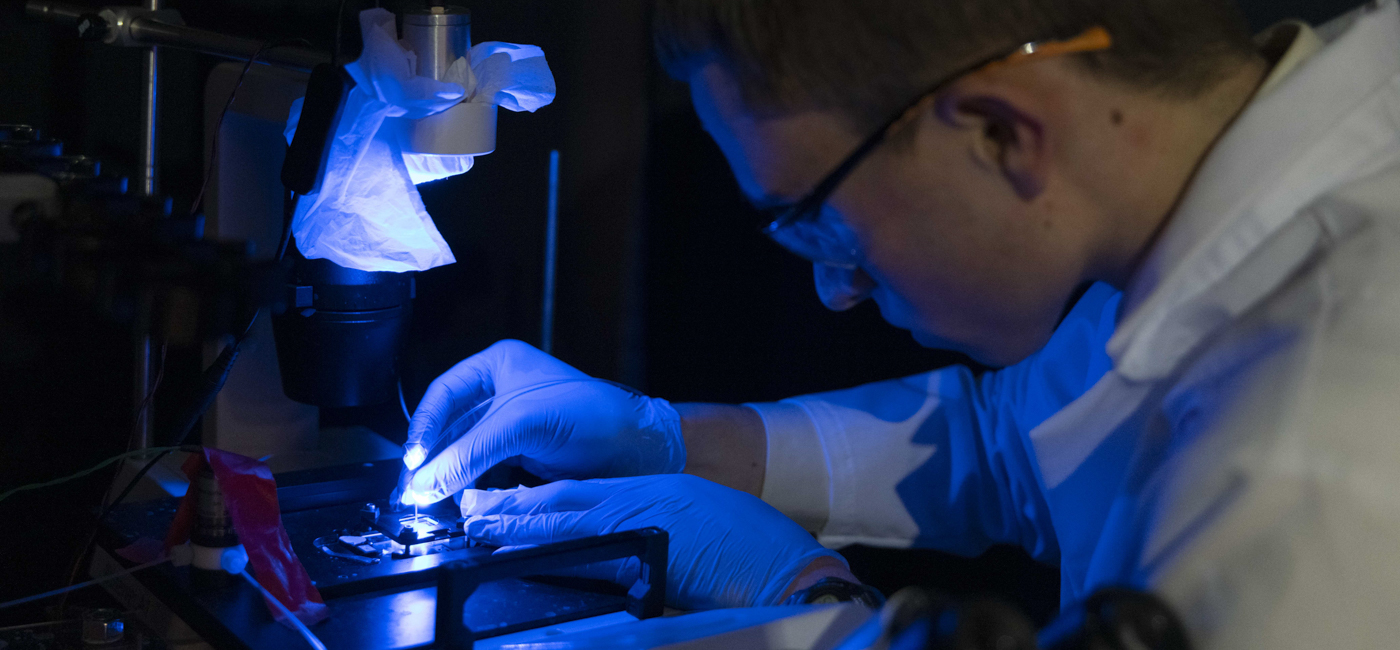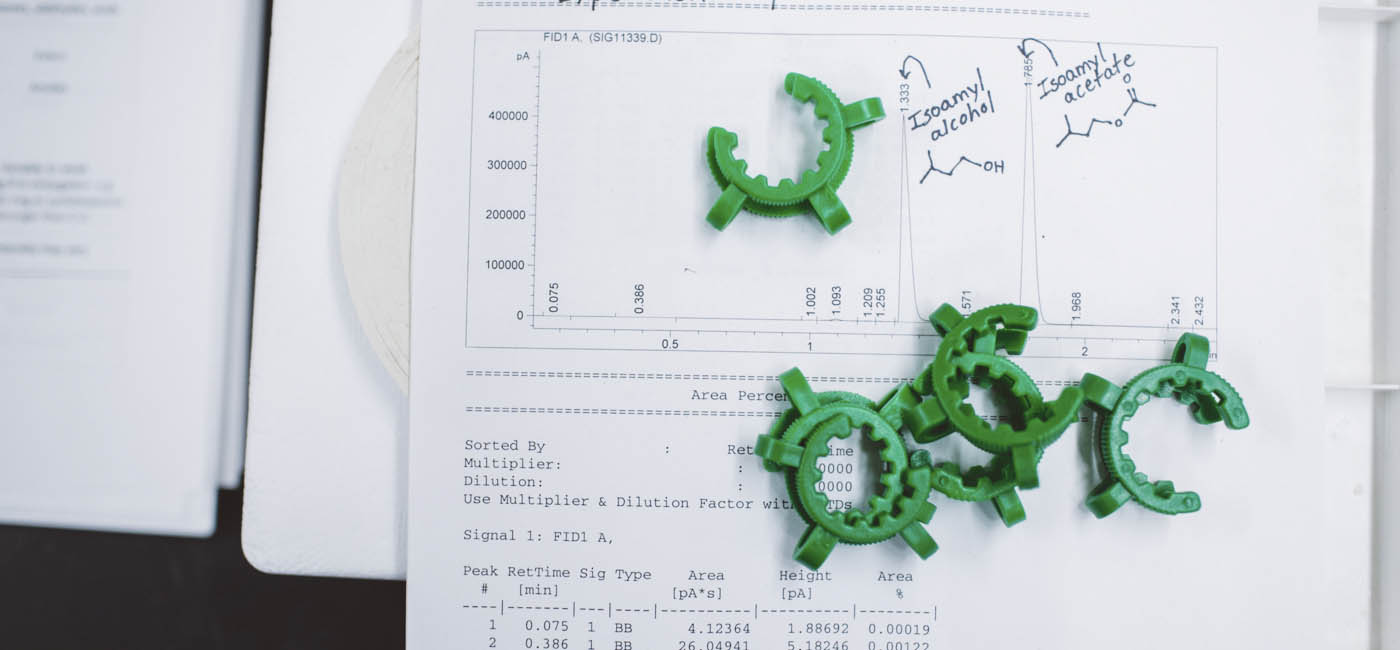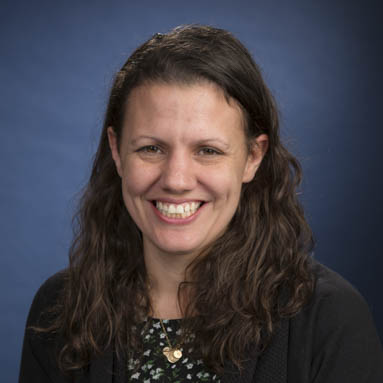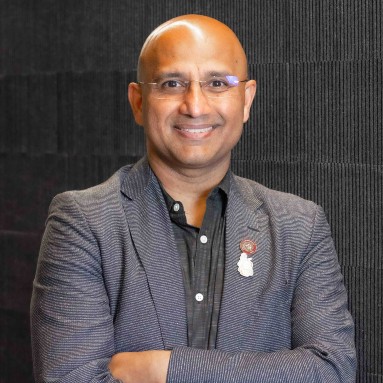Worcester Polytechnic Institute (WPI) is taking a cue from the world of recreational sports by launching a program to recruit, train, and coach undergraduates to become the next generation of biomedical researchers.
U-RISE@Wπ, which started in April 2024 and is supported by a $1,636,820 grant from the National Institutes of Health (NIH), will provide tuition and stipend funding, research opportunities, and academic and personal support to 15 students from populations underrepresented in biomedical research over five years to prepare the students for advanced studies and careers in research. The program is expected to improve the retention and graduation rates of WPI undergraduates from under-represented or disadvantaged backgrounds.
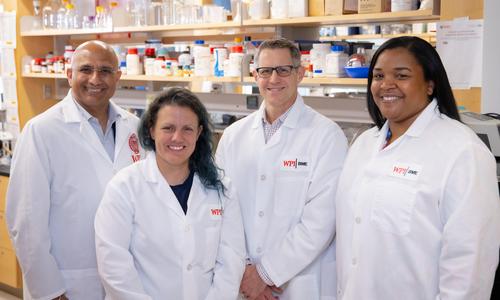
WPI researchers participating in U-RISE include, from left, Jagan Srinivasan, Carissa Olsen, Kristen Billiar, and Catherine Whittington.
“Longer-term research experiences are game changers for undergraduates,” said project director Kristen Billiar, John Woodman Higgins Professor of Engineering and head of the Department of Biomedical Engineering. “By spending time in laboratories and working on projects over time, students make academic gains and develop confidence that they can pursue careers in research. To connect more students from diverse backgrounds to these research experiences, we are leaning on the lessons of recreational sports and teamwork by recruiting, drafting, coaching, and training undergraduates for research careers.”
Under the program, up to 25 qualified first-year students who express interest are invited each year to participate in lunches and laboratory meetings to learn more about research and meet faculty one-on-one. They are “drafted” to small teams led by faculty members who act as “draft-year” coaches. Students formally apply to the program and a faculty laboratory at the end of their first year. Three students will be accepted each year.
Students accepted to U-RISE@Wπ conduct research in faculty laboratories for the next three years while also completing coursework. Faculty advisors and graduate-student mentors guide each undergraduate student’s research. Separately, each U-RISE@Wπ participant is assigned to a new “cohort coach” who helps the student develop a “game plan” for personal growth and success. The program aims to develop a fun and supportive environment, much like that of recreational sports, by coaching and mentoring students as they practice new skills, overcome losses, gain resilience and self-efficacy, and celebrate successes.
U-RISE@Wπ is funded through the NIH’s Undergraduate Research Training Initiative for Student Enhancement. The NIH initiative aims to promote broad participation in the biomedical research workforce to improve research, foster innovation, increase equity at educational institutions, decrease health disparities, and boost the nation’s competitiveness in global markets.

Elizabeth Ryder
WPI’s program will capitalize on the university’s strength as a leader in project-based learning. Projects and teamwork that combine theory and practice are integrated into coursework at WPI, where all undergraduates complete an interdisciplinary project with societal impact and a senior capstone project. The Council on Undergraduate Research awarded its 2023 Award for Undergraduate Research Accomplishments to WPI for the university’s commitment to fostering a culture of innovation, inquiry, and academic excellence.
A total of 45 faculty members in nine academic departments at WPI have agreed to participate in U-RISE@Wπ. Faculty members who will work with Billiar as assistant directors are Carissa Olsen, assistant professor in the Department of Chemistry and Biochemistry, and Elizabeth Ryder, professor in the Department of Biology and Biotechnology.
“I had an opportunity to do funded research as an undergraduate, and I know how important it is for students from underrepresented populations to experience research firsthand and learn that it is possible to pursue research as a career,” said Olsen.

